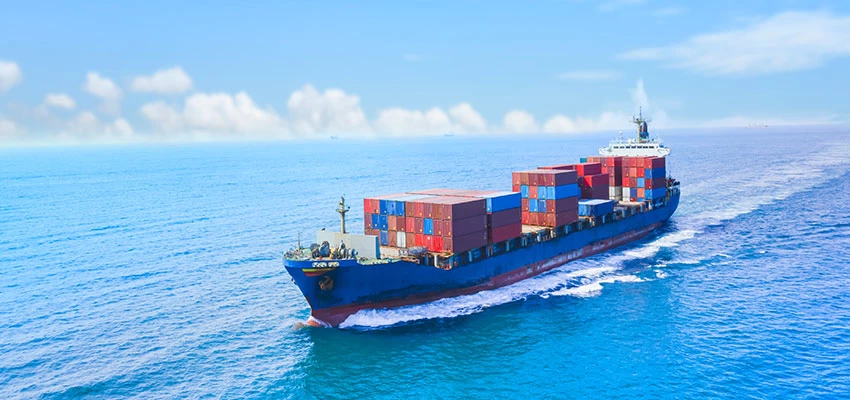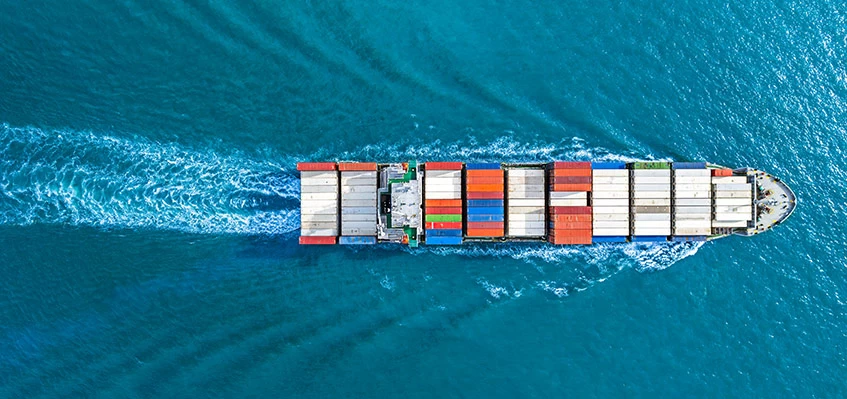Introduction
Deforestation remains a pressing global concern with alarming consequences for the environment, biodiversity, and climate change. In an effort to combat this issue, on 9 June 2023, the European Union notified the European Union Deforestation Regulation (‘EUDR’). The EUDR is a set of comprehensive regulations targeting the imports and domestic production of products associated with deforestation.
The EUDR lays down rules for making the product covered under the regulations available in the EU market. These regulations will also have far-reaching implications for Indian producers and exporters engaged in the trading of commodities like coffee, chocolates, soy, and wooden furniture. In this article, we will provide a brief overview of the EUDR, what it entails, and explore the impact of EUDR on Indian exports to the European Union.
Scope of EUDR - Products Covered
EUDR covers seven commodities, namely cattle, cocoa, coffee, oil palm, rubber, soy, and wood (‘covered products’). It also includes various products derived from these primary products such as items of cattle meat, cocoa beans, chocolate, derivatives of palm oil, natural rubber-based items, soybeans and soya oil, fuelwood, printed books, and wood furniture (‘derived products’). Some of the commodities covered are as follows:
|
Relevant Commodities covered under the Regulation
|
Relevant Products made from these commodities that are covered under the Regulation
|
|
Cattle
|
Cattle Meat whether fresh, frozen or chilled; hides and skins of cattle
|
|
Cocoa
|
Cocoa butter, fat and oil; coca beans; cocoa powder and chocolate
|
|
Coffee
|
Coffee, and its substitutes containing any amount of coffee
|
|
Oil palm
|
Palm nuts, Palm kernel oil, Glycerol, stearic acid, and oleic acid.
|
|
Rubber
|
Natural rubber, new pneumatic tyres, tubes and transmission belts
|
|
Soya
|
Soya beans, Soya bean flour and meal, soya-bean oil and soya oilcake
|
|
Wood
|
Fuel wood, wood wool, railway sleepers, fiberboard of wood, plywood, paper, printed books and wood furniture
|
Prohibitions and obligations under the EUDR
EUDR prohibits the availability of covered and derived products in the EU without fulfillment of the following three conditions -
- Products must be deforestation-free.
- They should have been produced in accordance with the legislations of country of production.
- They should be covered by a due diligence statement confirming that there is only a negligible risk of non-compliance with the EUDR.
We discuss the meaning of the above conditions in the following paragraphs.
Deforestation-Free
Under EUDR, the term ‘deforestation-free' implies that the covered products do not contain, have been fed with (in case of cattle), or have been made using relevant commodities produced on land converted from forest to agricultural use after 31 December 2020. For wood products, the wood has to be harvested from a forest without inducing forest degradation after 31 December 2020. It is important to note the cut-off date of 31 December 2020: the EUDR prohibits placing and making available of those covered and derived products which have been produced on land that has been deforested after 31 December 2020.
Further, under the EUDR, it is immaterial whether such conversion of land from forest to agricultural use was because of human interference or not. This implies that, for instance, if the forest was affected by a fire and subsequently was converted to land for agricultural use, products from such land would also be covered in the scope.
Produced in accordance with the relevant legislations of the producing country
An important pillar of the EUDR’s requirements is that the covered and derived products should have been produced in accordance with the relevant legislations of the country of production. The ‘Relevant legislations’ of country of production have been defined to include eight different areas of laws relating to land use rights, labour laws, environmental protection, tax, anti-corruption, trade and customs regulations. The scope of the relevant legislations that are required to be complied with are vast. This would place significant compliance burden on producers of the covered and derived products.
If the products are not deforestation-free or have not complied with relevant legislations, an operator cannot place them in the EU market. Therefore, Indian exporters will have to make sure that the products that they export to the EU comply with the above conditions under the EUDR.
Due diligence statement
The most important obligation that exporters to the EU will have to comply with is the requirement to provide a due diligence statement.
Under this obligation, the ‘operator’ (a person who would be placing the relevant products or making them available in the EU market) must certify that the product being placed in the EU market is deforestation-free, follows the relevant legislations of its country of production and only has a negligible risk of non-compliance.
Due-diligence requirement
Prior to importing the covered and derived products from non-EU countries into the EU, the operators or EU importers are obligated to furnish a due diligence statement to the competent authority in the EU. It is important to note that Indian exporters will not be able to export their products to the EU if, during the due diligence process, it is identified that there is a substantial risk of the products being in non-compliance with EUDR.
The due diligence process is a three-step process and includes the following:
- Collection of detailed information: Detailed information about the product including the geolocation of the plot of land where the relevant product commodity contained in the relevant product has been produced.
- Risk Assessment: Operators must carry out a 14 criteria-based risk assessment test to identify whether there is a risk of the product being non-compliant with the EUDR. These criteria include the presence of forests, indigenous people, the prevalence of deforestation, etc.
- Risk Mitigation Measures: This step includes measures to reduce potential risks by conducting independent surveys or audits, collecting supplementary documentation, or collaborating closely with suppliers.
Penalties for non-compliance
If an operator or trader has not complied with EUDR, the competent authorities in each EU member country can obligate the operator trader to take corrective actions to ensure compliance within a reasonable period of time. These corrective measures can include the following:
- Rectification of any form of non-compliance.
- Preventing the non-complying product from being placed in the EU market or being exported.
- Immediate withdrawal or recall of the non-complying product.
- Donating the non-complying product or disposing of it.
However, it is important to note that even if the operator or trader has undertaken the relevant corrective measures, they can still be subjected to significant penalties, which include:
- Monetary fines that are commensurate with the environmental harm and the value of the goods. The fines will increase with the recurrence of violations. Further, the fines are required to be at least 4% of the operator’s or trader’s union annual turnover.
- Confiscation of products of the operator or trader.
- Confiscation of revenues gained by the operator or trader.
- Temporary exclusion, for a maximum period of 12 months, from public procurement and public funding.
- Temporary prohibition from placing relevant goods in the European market.
- Prohibition from using simplified due-diligence process.
Impact on Indian exporters
From a legal perspective, the obligation under the EUDR can indeed cause apprehensions for exporters from India. However, exporters have time till 30 December 2024 till the obligations under the EUDR kick in. From this date, all companies importing relevant products in the EU will have to submit a due-diligence statement in order for the covered and derived products to be sold in the EU market.
Since the EUDR casts significant obligations on EU operators and traders, they would be cautious in importing relevant products. They would want to import only those products that are deforestation-free and comply with all the relevant legislations of the country of production. For fulfilling these requirements, they would want to only trade with those suppliers who are able to comply with the EUDR.
Though this would increase the compliance cost of Indian exporters., it can present an opportunity for those Indian exporters who are able to comply vis-à-vis those exporters who find it difficult to comply with these stringent requirements. While compliance can be costly and demanding, it also offers a path to sustainability and, enhanced market competitiveness.
[The author is an Associate in WTO and International Trade Division in Lakshmikumaran & Sridharan Attorneys, New Delhi]












